Jointly organized by
Faculty of Graduate Studies, University of Sri Jayewardenepura,
Ministry of Science, Technology & Research
and
National Science Foundation
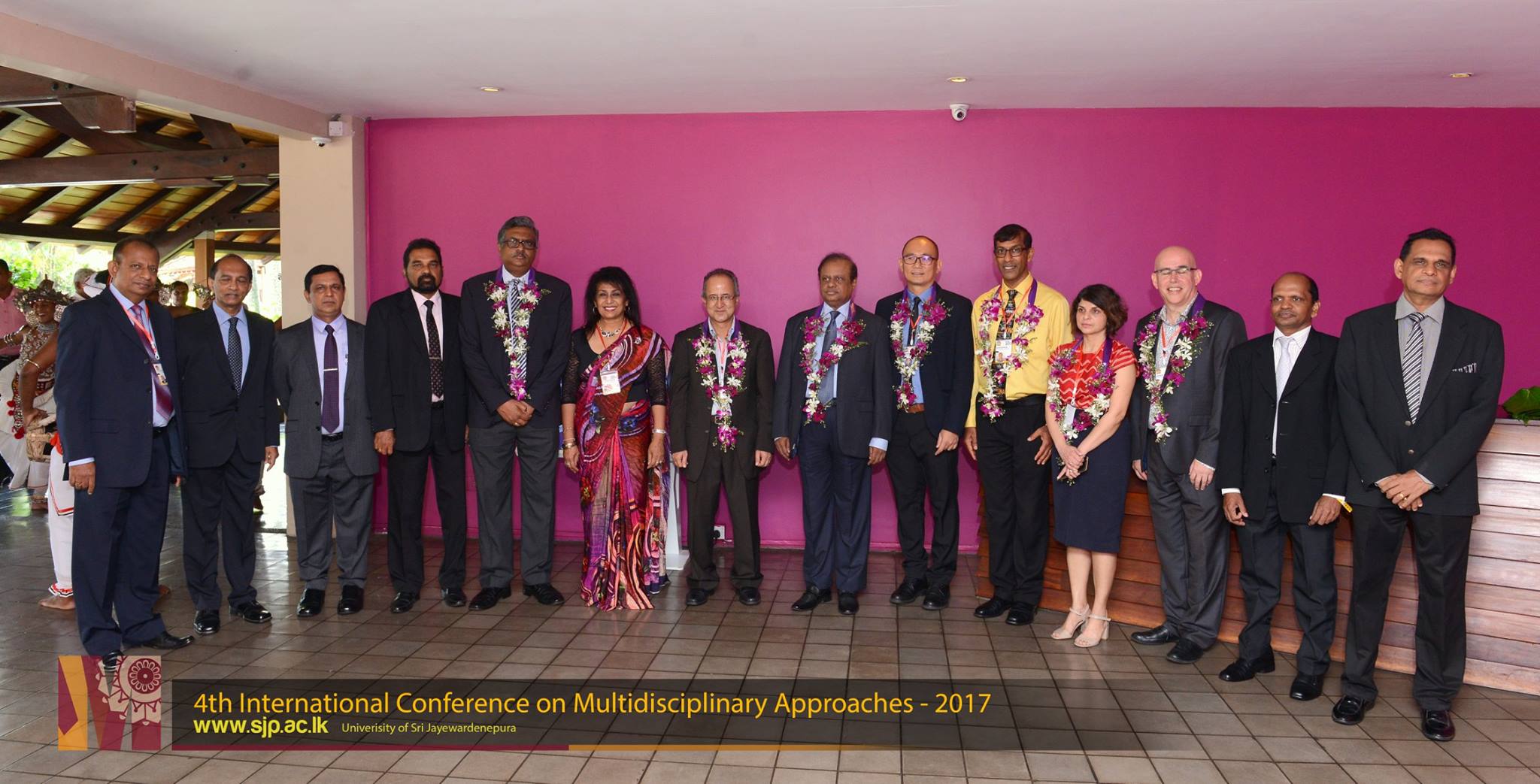 Introduction
IntroductionFaculty of Graduate Studies (FGS) of the University of Sri Jayewardenepura is the official coordinating body for postgraduate education and research activities in the university. With this purview, FGS organizes International Conference on Multidisciplinary Approaches (iCMA) to provide a forum for academics and industrial professionals engaged in multidisciplinary research & development. International Conference on Multidisciplinary Approaches (iCMA) is a conference dedicated for dissemination of research findings of Sri Lankan researchers. Commenced 4 years ago in 2014. iCMA has become a effective platform to many a researchers to present their findings to a larger audience. In 2016, Ministry of Science, Technology and Research joined the iCMA as a joint partner making the conference more attractive as highly reputed event.
In this international conference planned for the fourth time, 165 researchers presented their findings under different disciplines;
In addition to the above, eminent international scientists presented guest lectures under the themes of; Agriculture in Transition, Food Security and Poverty Alleviation, Sustainable Consumption and Production for National Happiness and Wellbeing in South Asia, Innovation and Green Industry Development, Education towards better Informed Community, Sustainable Cities and Communities & Role of Eco System Services for Sustainable Development.
Objectives of the Conference are;
iCMA 2017 was organized this year at Hikka Tranz, Hikkaduwa from 20th to 22nd September. The theme of the conference was “Sustainable Development through Multidisciplinary Research”. In 2017 in addtion to the Ministry of Science, Technology and Research, National Science Foundation also joined as a co partner.
Hon Susil Premjayantha, Minister of Science, Technology and Research, graced the occasion as the chief guest while a large number of professionals were participated in the conference and Several international speakers were scheduled to speak on the first day in the theme seminar.
At the inauguration, Hon Susil PremaJayantha – Minister of Science, Technology and Research, Participated as the Chief Guest and Prof Paul Sanders of Queensland University, Australia was present as the Keynote Speaker.
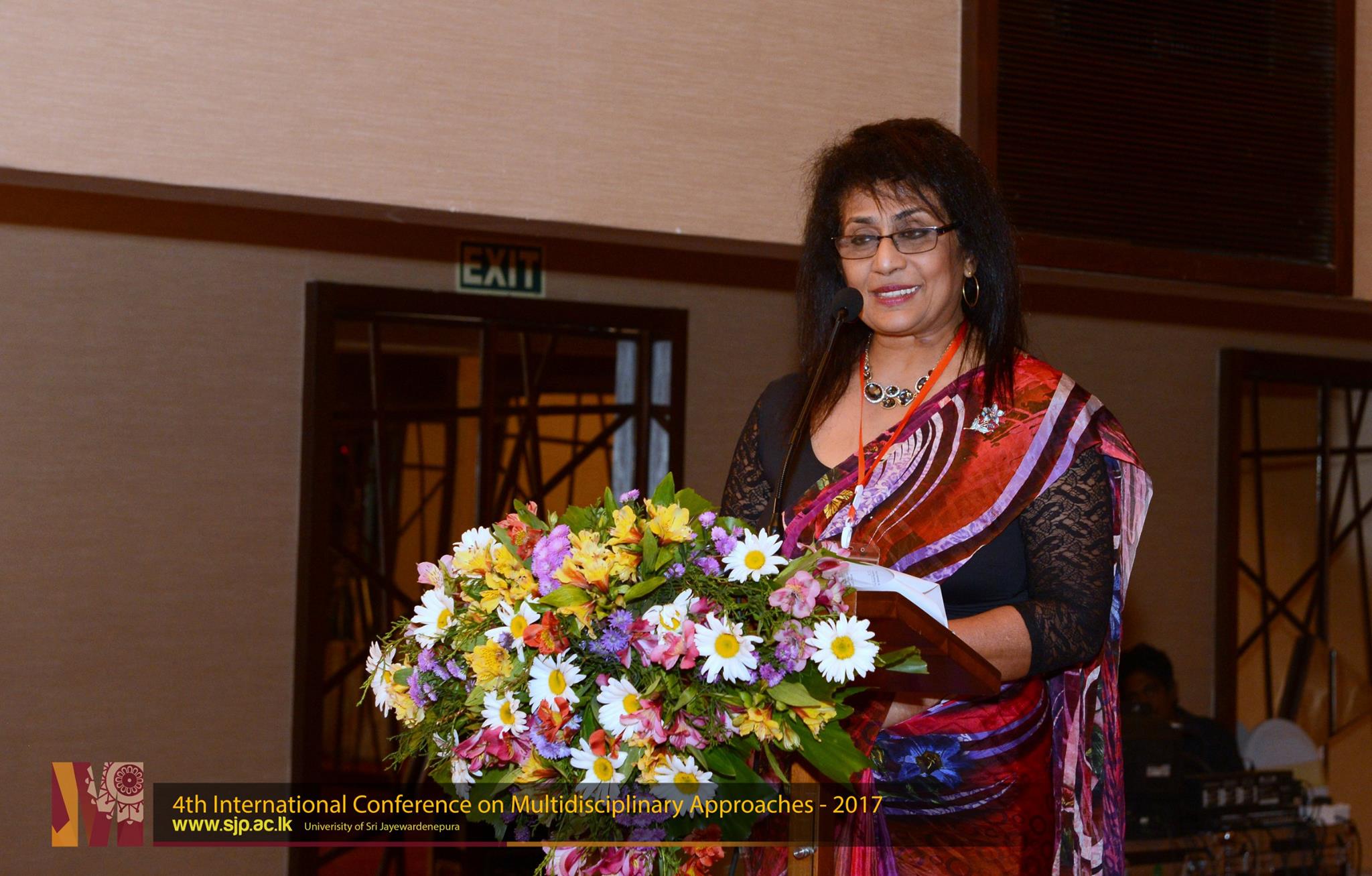 |
Prof Hemanthi Ranasinghe/ Dean FGS made the welcome address and spoke about the faculty of graduate studies, its role and the mandate and the background to the international conference on multidisciplinary approaches. She explained the objectives behind the iCMA and reiterated the importance of dissemination research findings by the students in the audiences where policy makers are present. She said iCMA is now a key annual event in the FGS calendar. She extended her appreciation to Ministry of Science, Technology and Research and National Science Foundation for co-partnering the event. |
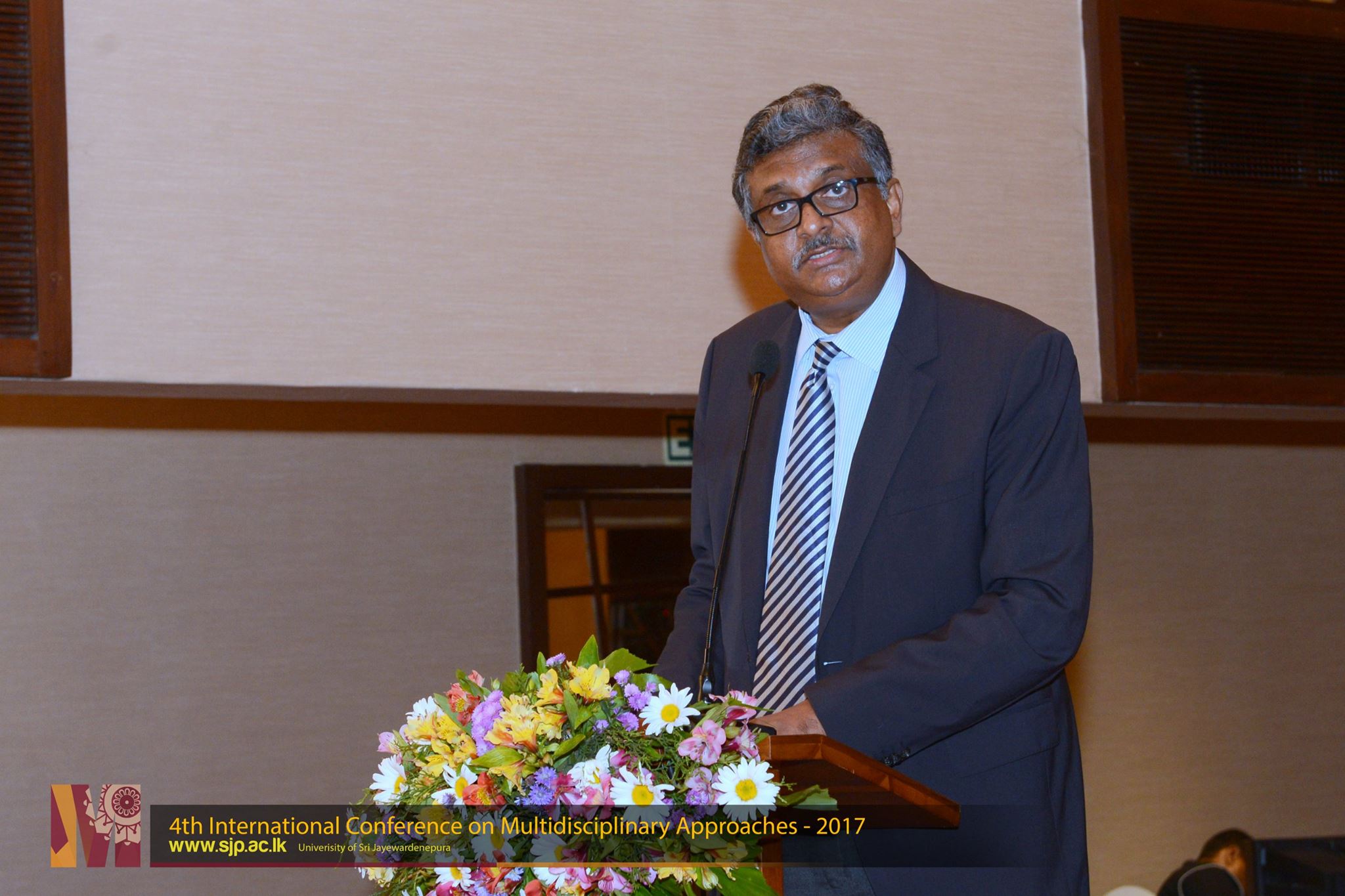 |
Prof. Sampath Amaratunga /Vice Chancellor addressing the conference stressed the importance of multidisciplinary research in the university and said the university is considering research as the prime role of the academic institutions and as a result University of Sri Jayewardenepura has provided assistance to academics and the students to engage in applied research through research centers and Faculty of Graduate Studies. Since iCMA is a platform for students to present their hard work he said the conference is a key event of FGS he extended his well wishes for the conference. |
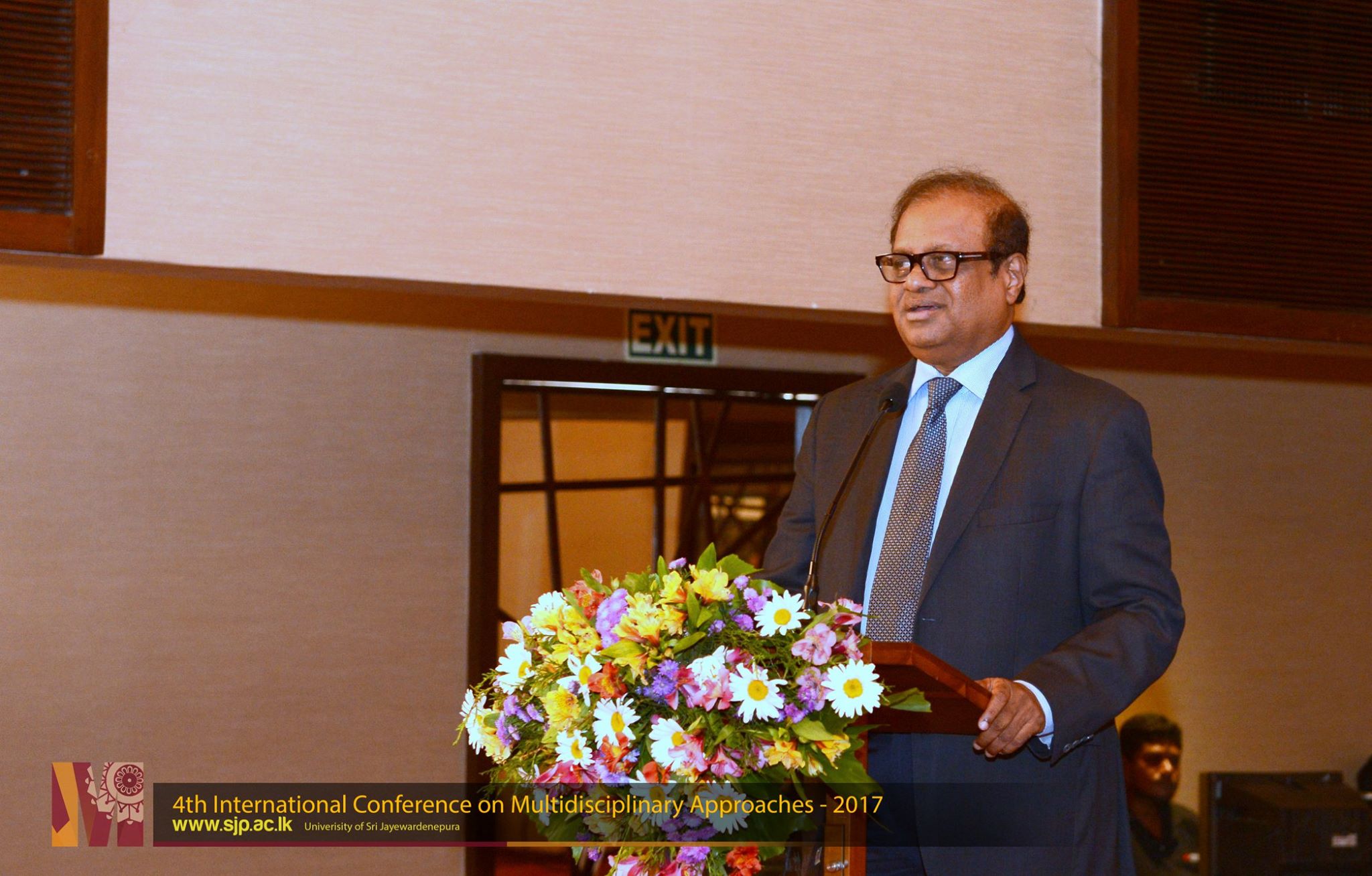 |
Hon. Minister Susil Premajayantha highlighted the Importance of Multidisciplinary approaches for the country’s development. Further he stressed the commitment by his Ministry for supporting all the universities in conducting research. The relevance of SDGs and Sustainable Development, with special emphasis on poverty alleviation and environmental protection was another important area pointed out by the Minister. The need of a mechanism for academics and universities to address trivial needs of the country on climate change related scenarios was another aspect stressed by the minister. |
 |
Prof Paul Sanders delivered his key note address on Challenges in the delivery of ‘Urban villages’ through complex stakeholder partnerships and multi-disciplinary approaches”. He described the attributes of an Urban Village as small size, combine residential with work, retail and leisure together, self-sustaining, mixed social and economic groups, well designed and well managed efficient transport. He further discussed 10 principles of successful design of urban village through examples. |
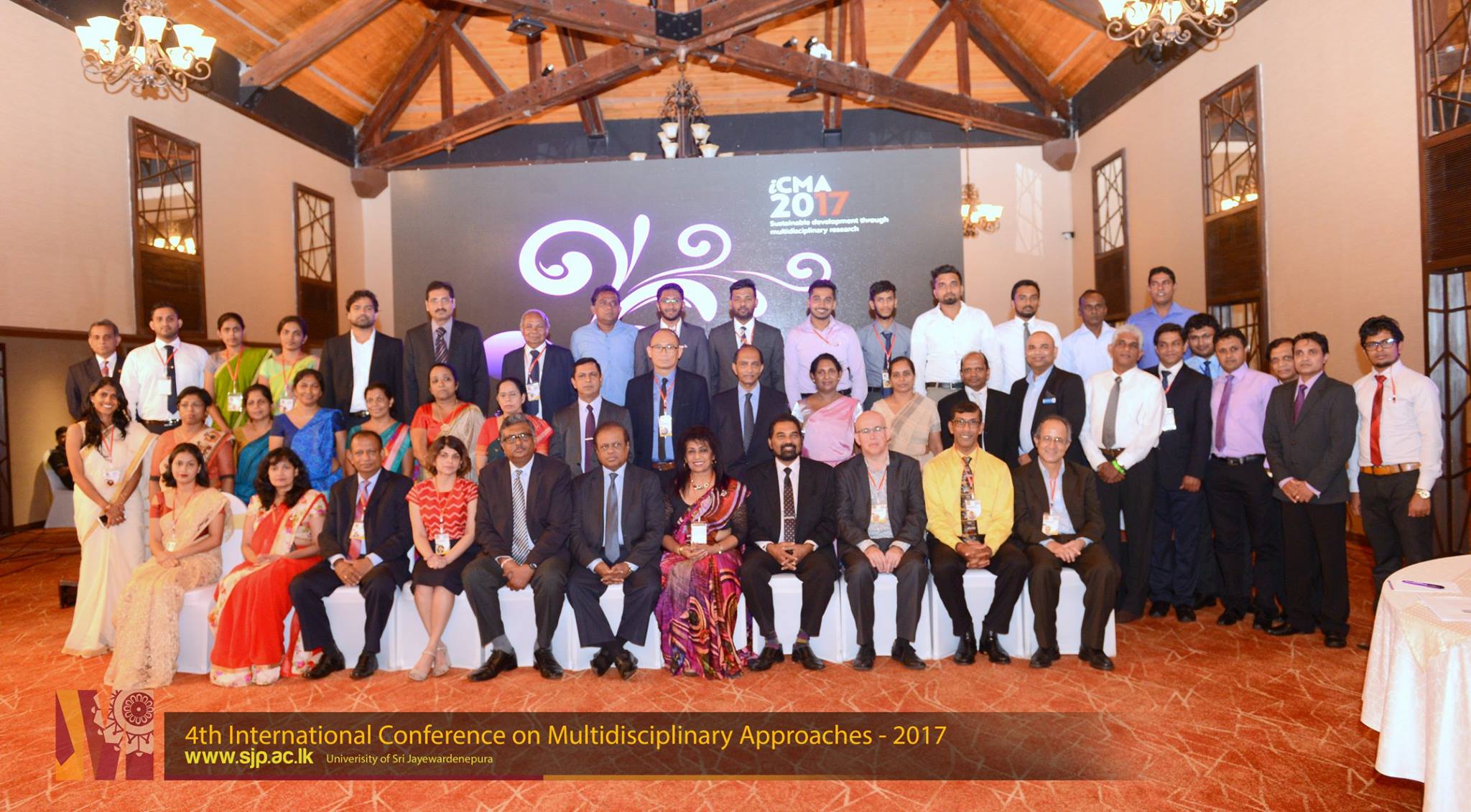
After the morning break a thematic seminar was held where several invited scholars of international repute made presentations on a variety of topics which are fundamental to achieving Sustainable Development Goals by 2030. Since the Government has committed to fulfil the targets under the Sustainable Development Goals (SDG) the topics of the Thematic Seminar were highly appropriate and timely. Key excerpts from the thematic speeches are shown below.
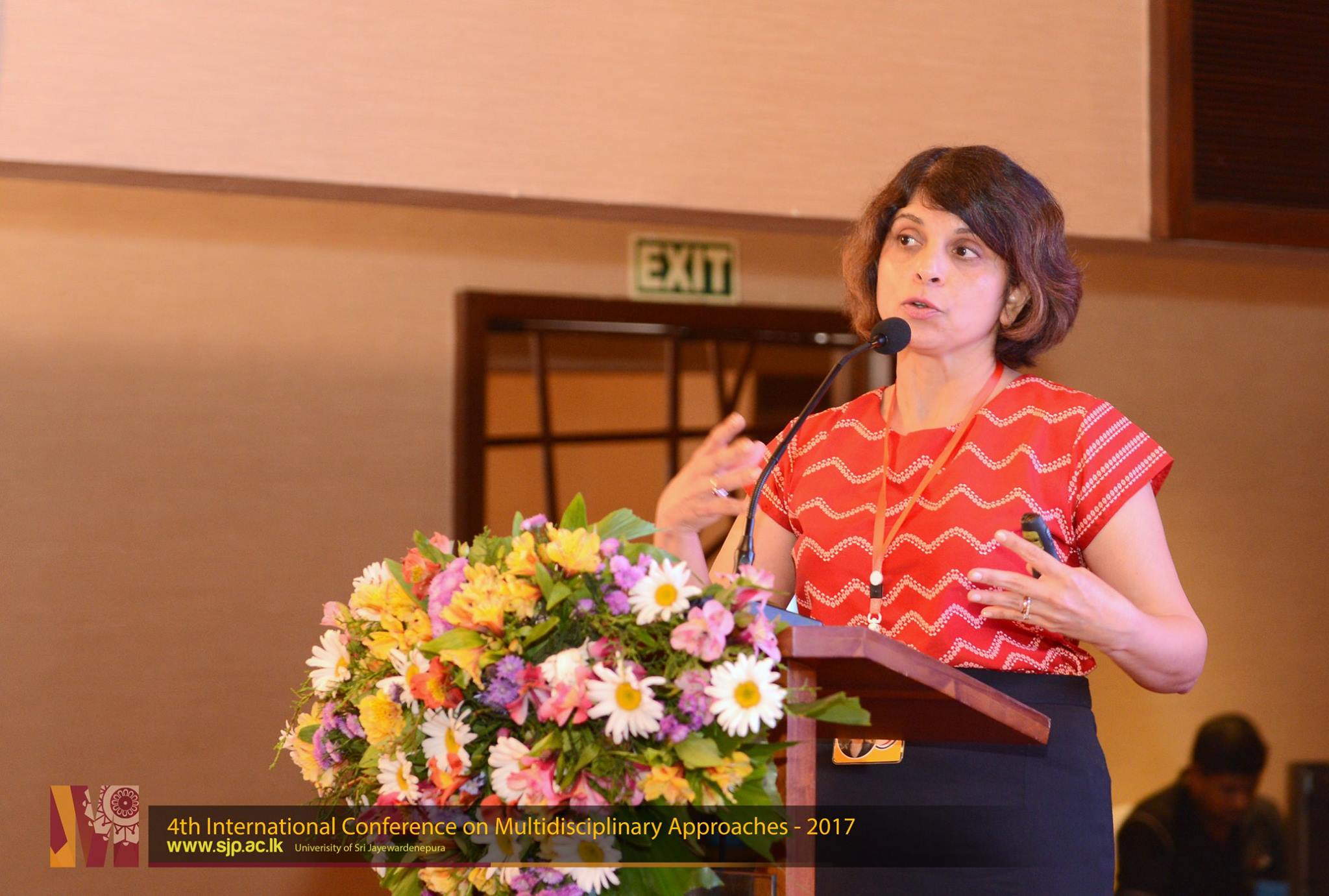 |
Prof Anu Rammohan, from University of Western Australia spoke on Agriculture in Transition, Food security and Poverty alleviation. The key points of her speech included;
She said there is a close relationship between poverty and malnutrition rate and therefore it is important to increased productivity of agriculture can enhance economic growth while reducing poverty in the country and ensure food security. In conclusion she said the increased agricultural productivity will lower food prices for consumers; higher incomes for producers; and growth multiplier effects through the rest of the economy as demand for other goods and services increases. |
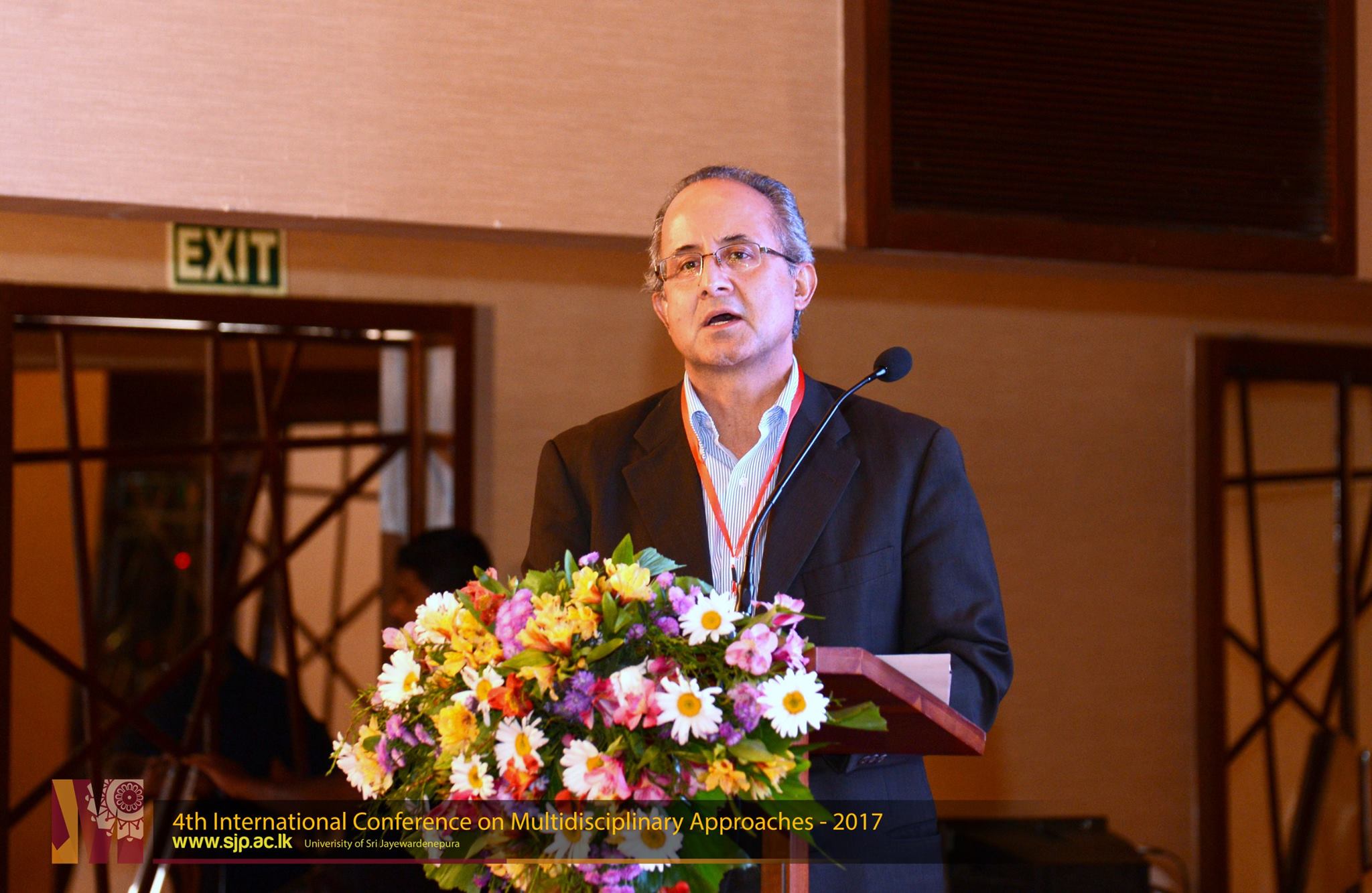 |
Dr Madhav Karki, from Environment Protection Council, Nepal spoke on Sustainable Consumption and Production for National Happiness and Wellbeing in South Asia. The key points of his speech included;
He said in the South Asian region the people are not highly prosperous and from cultural point of people are not wasteful but thrift, the basic qualities of sustainable consumption. As a result the people in South Asia are happier when compared to other global citizen groups. |
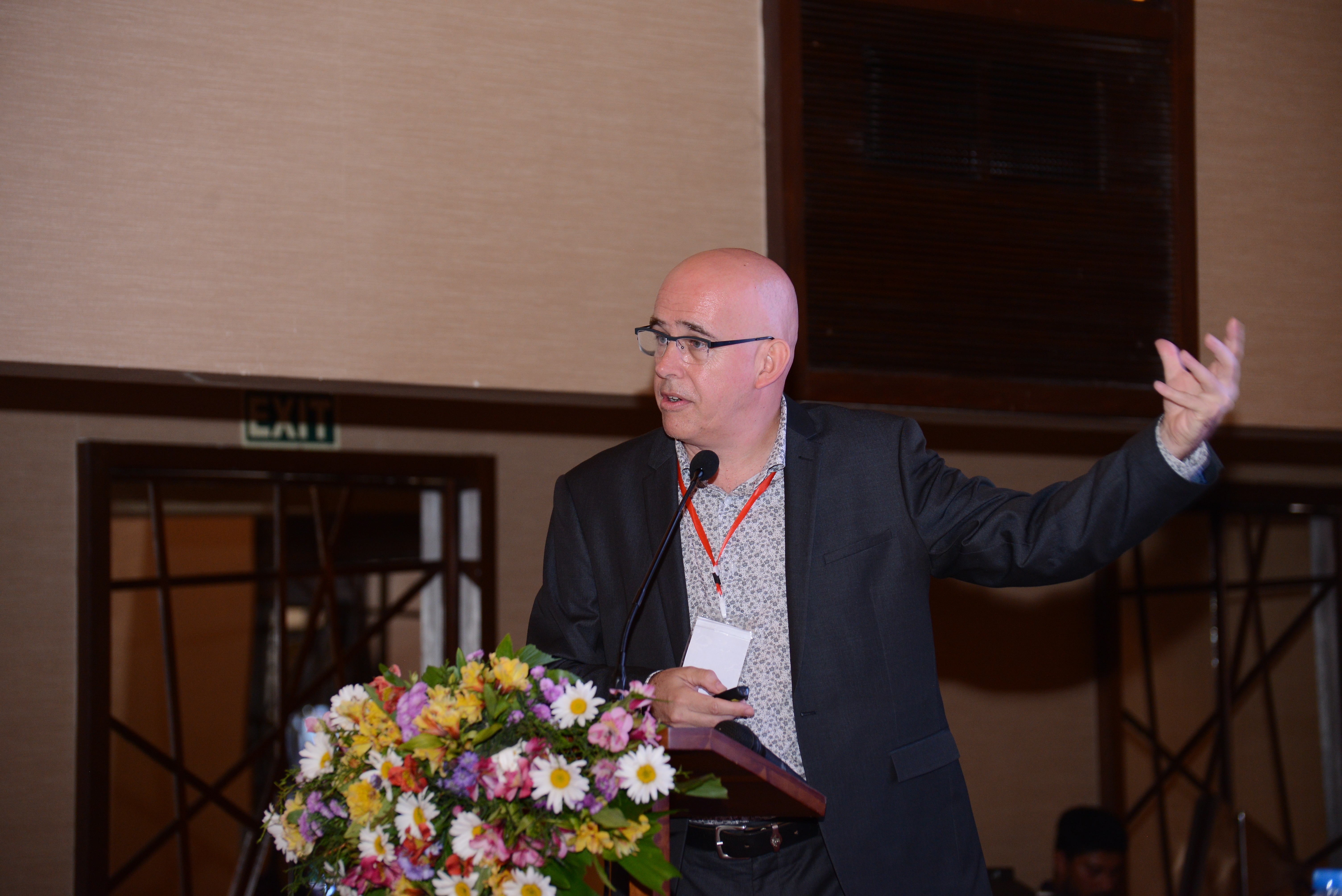 |
Prof Paul Sanders addressing the conference spoke about importance of public space for enhanced resilience of Urban Areas. The key points of his speech included;
He cited many examples of public space development along the history of human civilization and in conclusion he said people like to have public places which provides freedom and stress free behavior and said Sri Lanka also should design public places when designing urban infrastructure. |
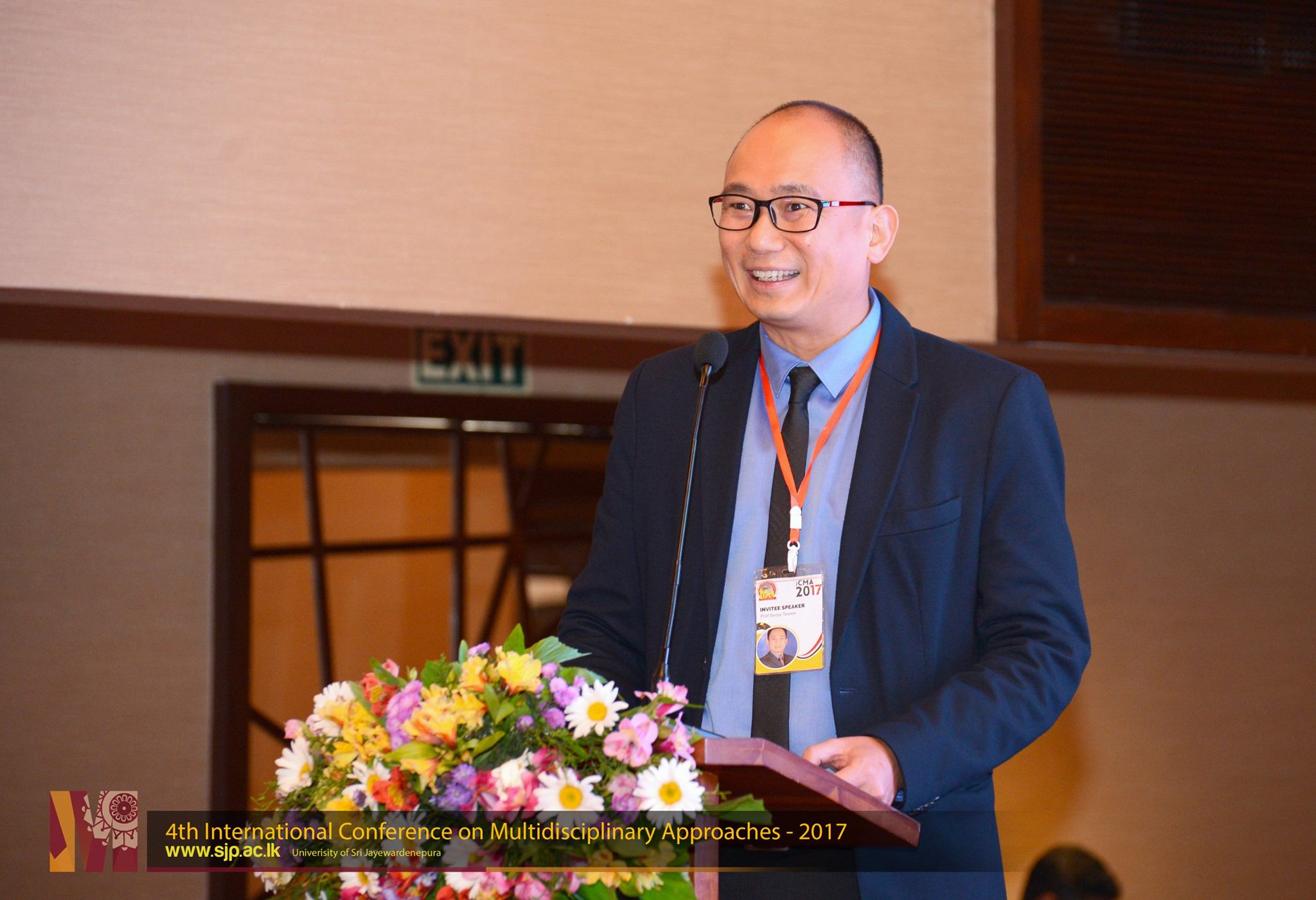 |
Prof Seow Ta Wee from University of Tun Hussein Onn, Malaysia addressed the conference on “Malaysia’s Experience on Green Building Index”. The key points of his speech included;
As Sri Lanka is also introducing green building guidelines soon it will be wise to introduce green building index as a positive step for motivation of investors. |
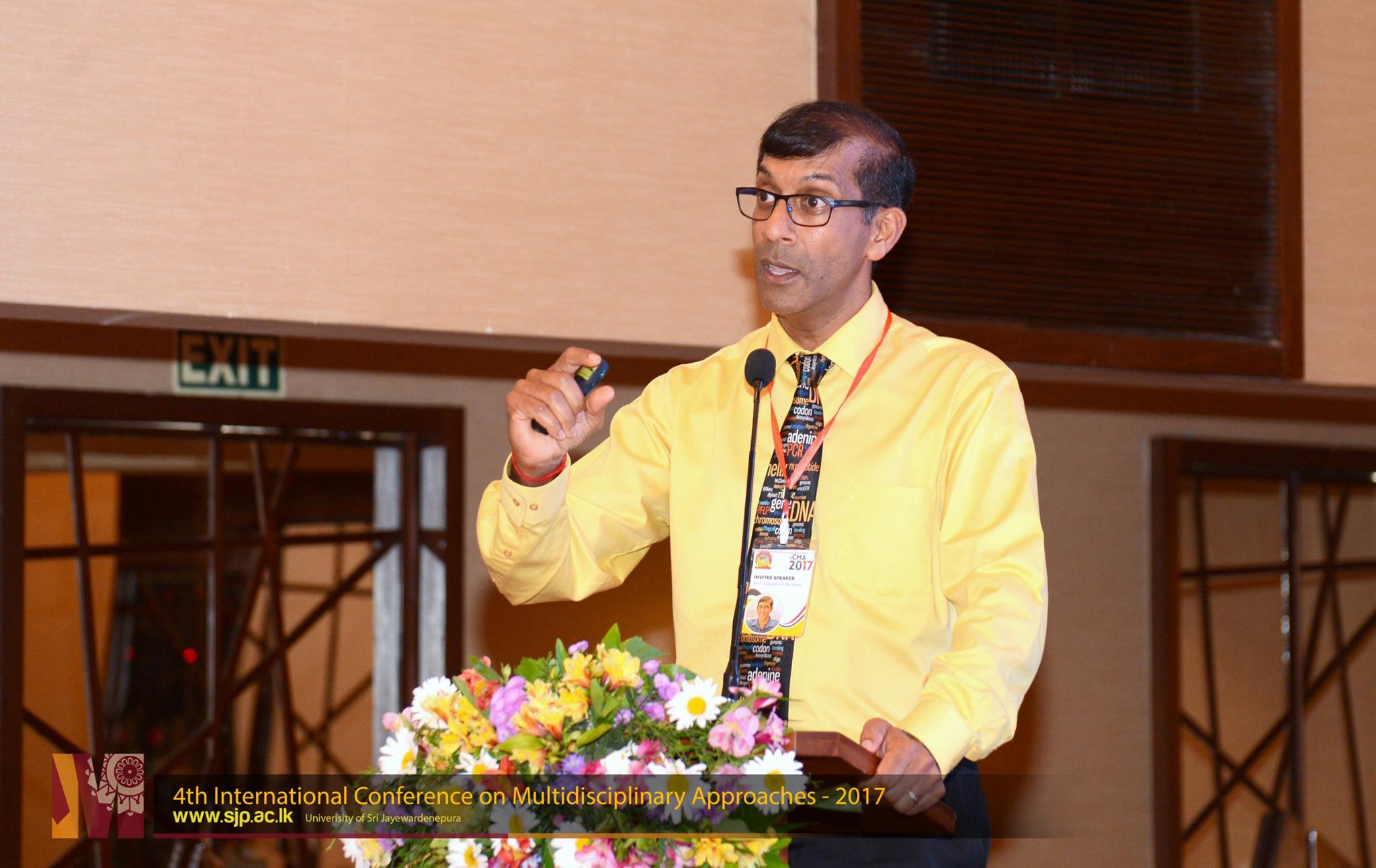 |
Prof Sagadevan Munree of Queensland University of technology, Australia addressed the conference on “Future Crops: The Challenge to Feed the Next Generation”. The key points of his speech included;
In conclusion he said to meet the Global challenge to sustain an increasing population and especially increasing urban population in the word new strategies for providing protein requirement will be a huge challenge even for a country like Sri Lanka with limited land availability. He said it will be up to the policy makers to plan for smart cities with urban farms and crops with higher yields to meet the challenge. |
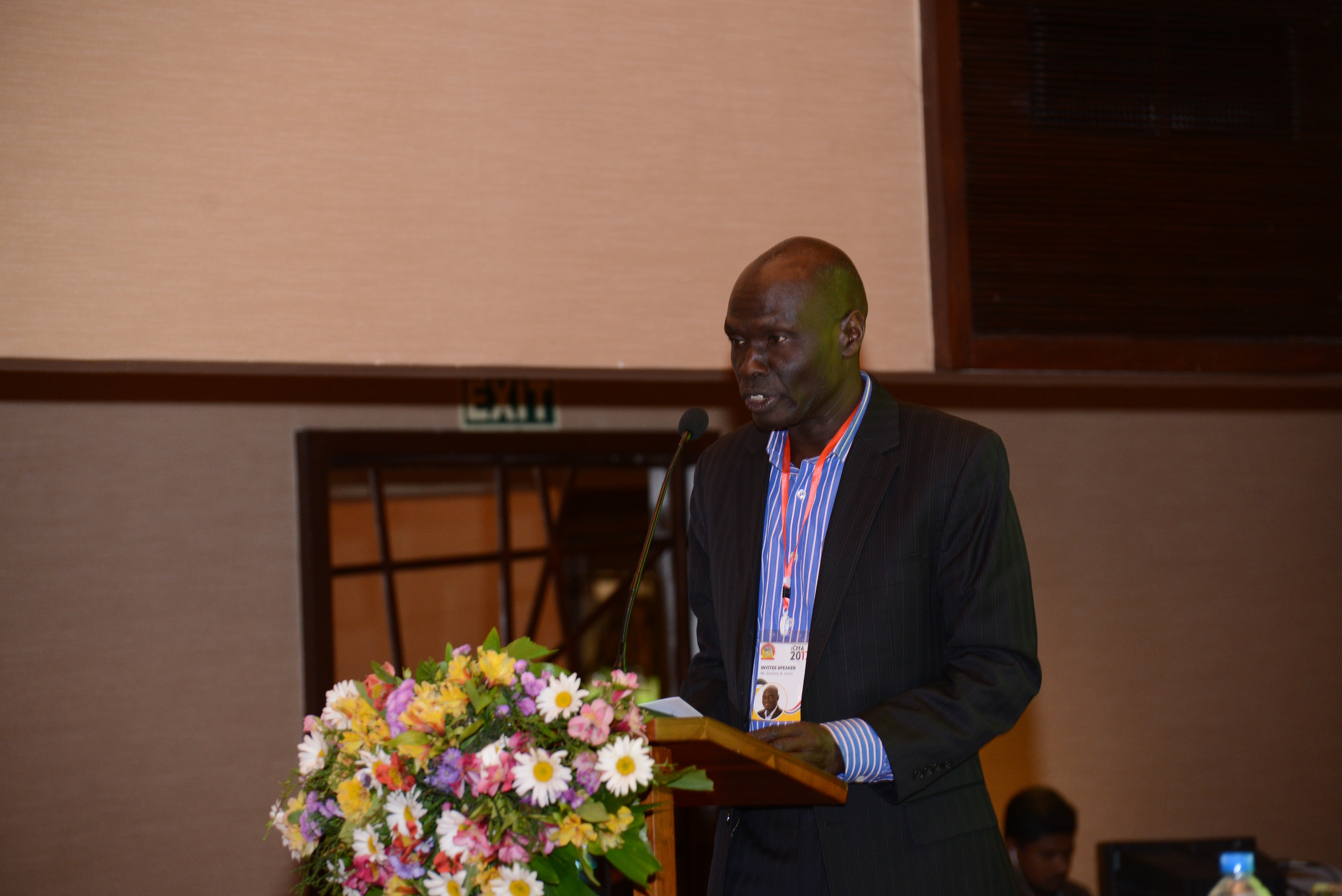 |
Mr Zachary Lomo from York University, Canada spoke on “education for better informed community: what type of education? A view from sub-Saharan Africa”. The key points of his speech included;
In conclusion he pointed out that Western education with its dominant epistemological order or paradigm can only produce an informed community about western visions and versions of social reality and social development and If multidisciplinary research approaches is to provide alternative vision for a world of diversity, equity, dignity, and opportunity for all, it will have to first decouple itself from its western epistemological cord and seek alternative context and referent within local episteme. |
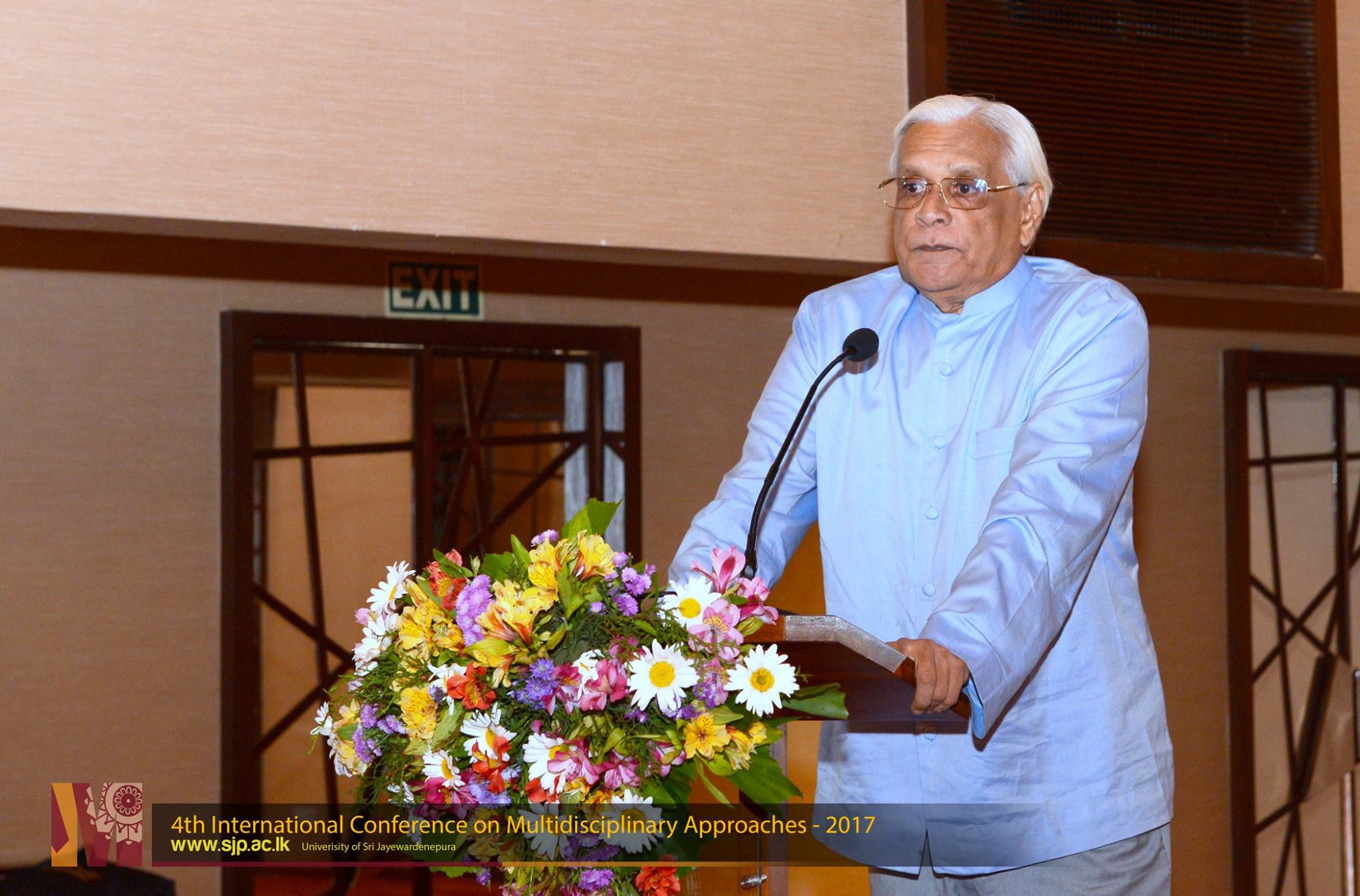 |
Speech by Prof J B Dissanayake- Emeritus Professor of Sinhala on “Wealth, Joy, Knowledge and Truth”. The key points of his Lecture included;
Taking examples from the past Sri Lanka and the South Asian region he showed how different numbering systems developed and how we reached the current numbering systems. In conclusion he said the universities are ideal places for searching for new knowledge and it is a responsibility of them to make use of this opportunity. |
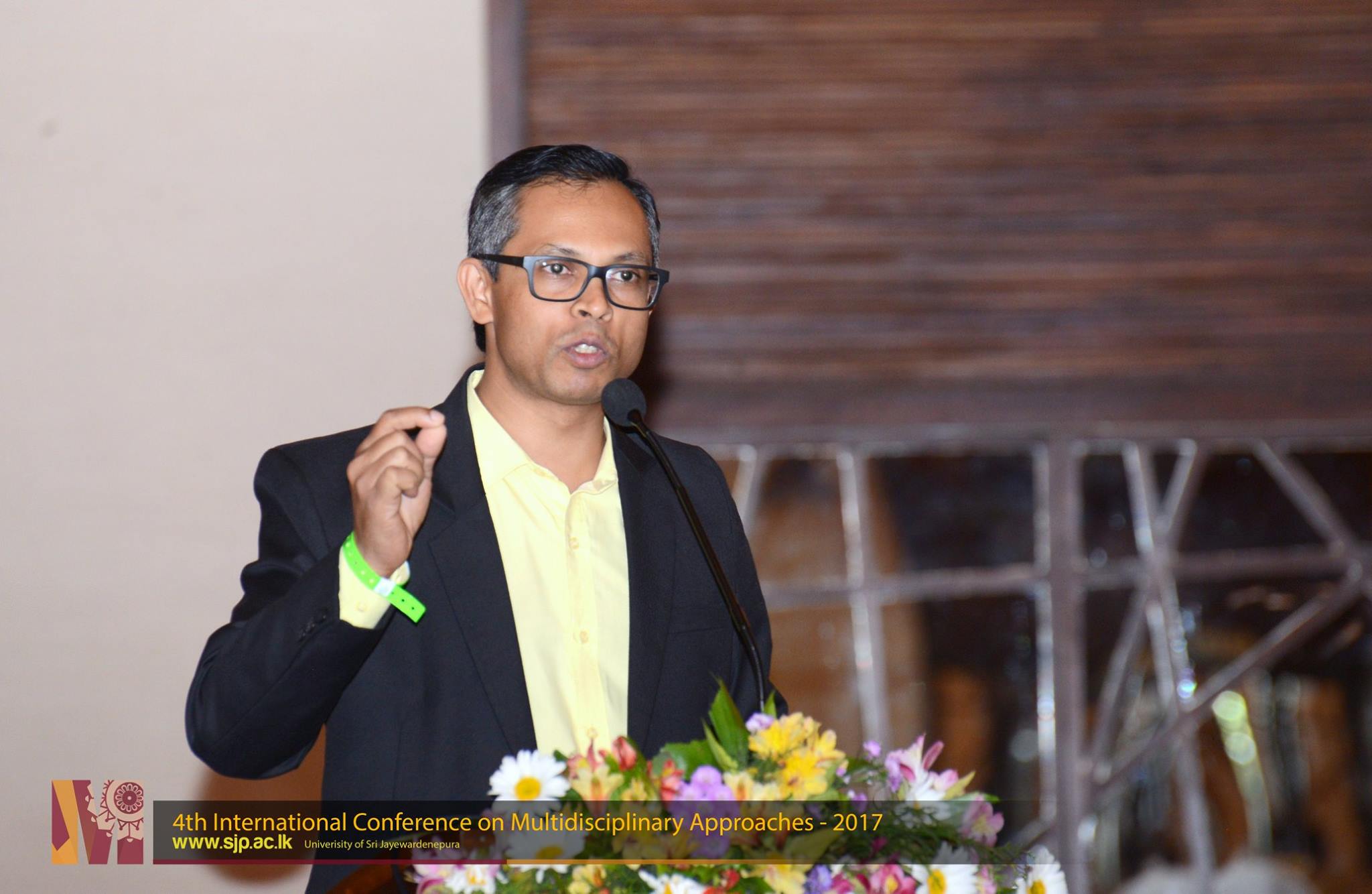 |
Speech by Dr Sanath Mahawithanage, Faculty of Medical Sciences, University of Sri Jayewardenepura on “Mindfulness”. The key points of his Lecture included;
|
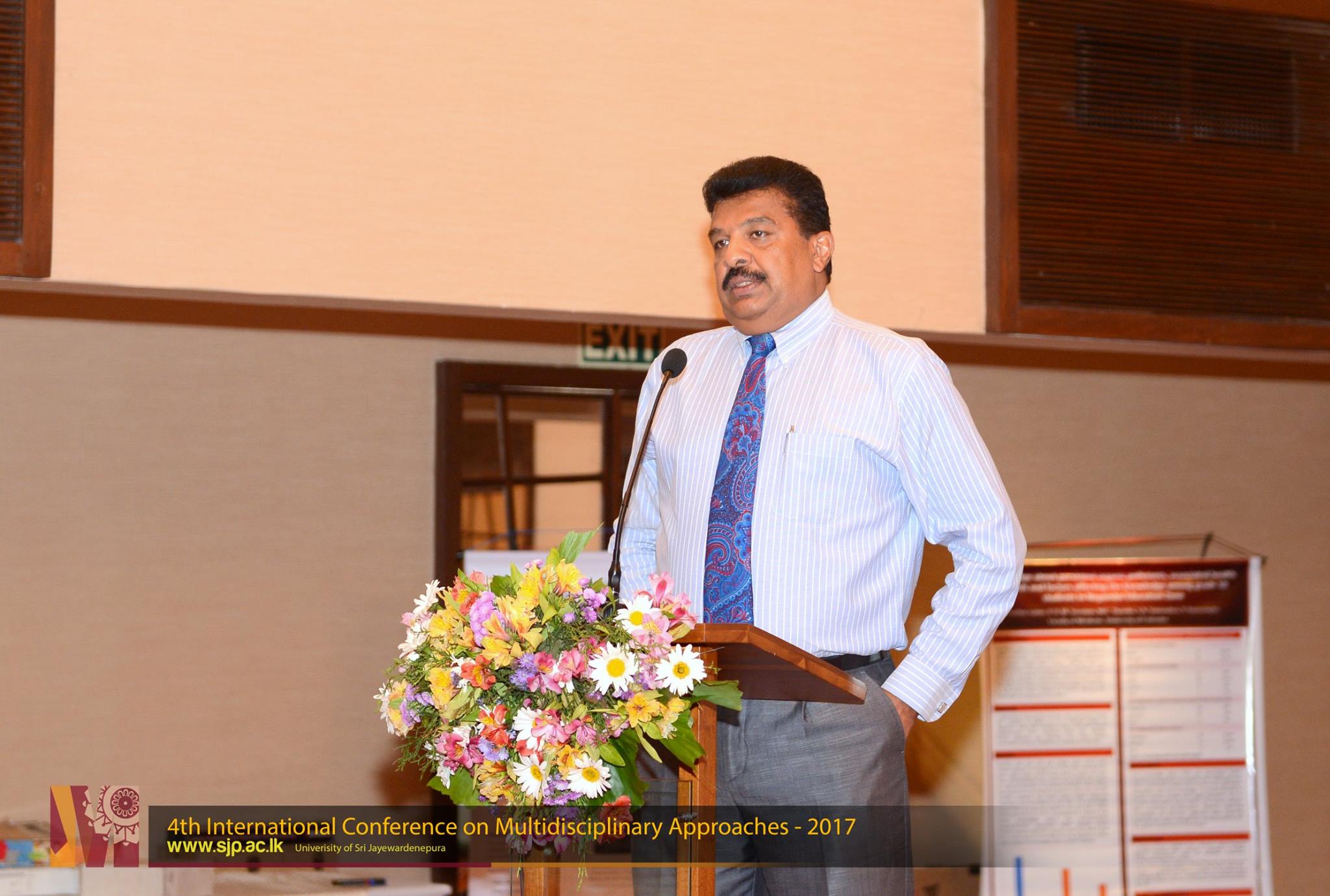 |
Speech by Dr Ravi Liyanage “Business Today and challenges to Universities on delivering competent Graduates”. The key points of his Lecture included;
Taking examples from the business world he showed how the business world expects the behavior of a new graduate once he enters the employment market. He reiterated that the students who are passing out should have the multidisciplinary approach in facing the business problems and finding solutions. |
Thematic Seminar
The six invited guests who addressed the thematic seminar brought knowledge and experience from the external world on how to find solutions to our major problems such as food security, Urban development and ecologically friendly built environment, education for better livelihood, eradicating the hunger and malnutrition and finding happiness within available means of resources. The lessons learnt from them can be applied by policy makers and practitioners to enhance quality of life and meet the challenges of fulfilling the Sustainable Development Goals (SDGs) by 2030.
Research Presentations
During two days 165 researchers from all universities including Sri Jayewardenepura presented their research studies to a larger audience and 62 posters also was displayed by the students and researchers who were not eligible to present papers.
Most of these presentations will be useful to future researchers as well as policy makers to make informed decisions for developing economic development programs.
Closing Session
The following outputs were discussed and agreed by the experts and the participants during the summing up session
FGS willconduct a post conference analysis to assess the research papers for futuresupport and continuation for new innovations and how they can contribute tonational development
Centre for research, development and consultancy for thedissemination of novel technologies, practices and solutions acquired throughmultidisciplinary research
Gallery
